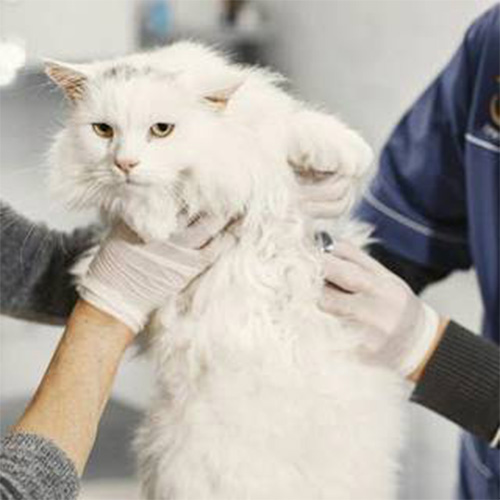SAVE THE DATE -- 2026 VetCOT Annual Conference April 24-26, 2026, in Las Vegas!

The Veterinary Advanced Trauma Life Support (VetATLS) Program is designed for veterinarians and veterinary teams who want to enhance their confidence and competence in managing emergent trauma patients. The online modules for this program provide foundational knowledge of the principles of small animal trauma patient management. These modules also identify best practices in veterinary trauma patient care and provide standardized approaches to trauma patient triage, diagnostics, and treatment.
A full VetATLS Certification Program will be available in early 2026. This full Certification Program presents core advanced trauma and life support concepts paired with clinical case scenarios. The online VetATLS Certification Program will be eligible for continuing education credits and will be a requirement for further in-person scenario-based simulation training.
This module – The Primary Survey – is free for all learners, and covers the primary survey, including the steps needed to best assess the veterinary trauma patient. Successful completion of this online module is a prerequisite for all additional VetATLS modules.
This module includes a case study designed to help learners understand and apply what they are learning. The module also includes downloadable resources, suggested readings, and other supplementary information.

This module – The Primary Survey – is free for all learners, and covers the primary survey, including the steps needed to best assess the veterinary trauma patient. Successful completion of this online module is a prerequisite for all additional VetATLS modules.
This module includes a case study designed to help learners understand and apply what they are learning. The module also includes downloadable resources, suggested readings, and other supplementary information.

For veterinarians, veterinary students, and veterinary teams, who want to enhance their confidence, competence, and communication while managing emergent patients, the Veterinary Advanced Trauma Life Support (VetATLS) is an education program that improves trauma patient outcomes. The pillars of the program include clinical knowledge and skills, communication, teamwork, leadership, and networking across providers.
The intended learner is any veterinary practitioner who seeks to improve the care of veterinary trauma patients. Specifically, general practice and emergency clinicians who see trauma cases with some regularity will be targeted. The intended learner spans a variety of geographic locations, practice compositions, and years out of practice.
The course is organized into 11 modules. Each module is based on a body system or element of triage. The modules are as follows:
The modules are designed to be short, easily understood, and focused on key information about trauma care and stabilization. The following questions should be addressed in each module:
The module topics will be delivered through an online learning platform. They will be accompanied by videos, pictures, algorithms, and charts. The in-person portion of the course will feature short live lectures and skills stations to cement key psychomotor skills. The modules will be accompanied by supplementary material on the following topics:
A. Ocular Trauma
B. Species-Specific Considerations
C. Teamwork and Leadership
D. Client Communications
E. Financial Considerations
F. Abuse and Neglect
G. Resource-Limited Environments
H. Extremes of Age Considerations
There will be both an online and an in-person assessments to measure competency and understanding. The assessments will be rooted in objective parameters that will guide knowledge retention throughout the course.
Form: Name, Email, Question ([email protected])
Email course coordinators at any point:
Dr. Kelly Hall – [email protected]
Dr. Claire Tucker – [email protected]